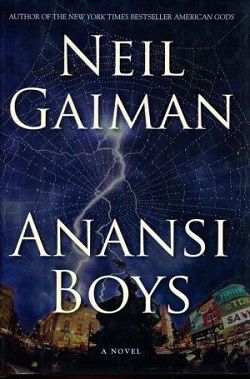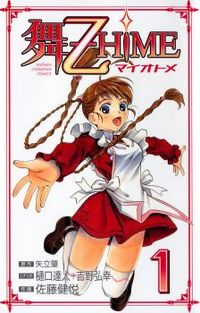Summary

Anansi Boys
by Neil Gaiman
God is dead. Meet the kids.
Fat Charlie Nancy's normal life ended the moment his father dropped dead on a Florida karaoke stage. Charlie didn't know his dad was a god. And he never knew he had a brother.
Now brother Spider's on his doorstep -- about to make Fat Charlie's life more interesting... and a lot more dangerous.
.
Read
Anansi Boys on http://kissnovel.net
Martial Peak Reviews
Neil Gaiman's Anansi Boys is a masterful blend of myth, humor, and the complexities of family dynamics, all wrapped in a narrative that is as engaging as it is thought-provoking. The story begins with the unexpected death of Fat Charlie Nancy's father during a karaoke performance in Florida, an event that sets off a chain reaction of revelations that will forever alter Charlie's mundane existence. What follows is a journey that intertwines the ordinary with the extraordinary, as Charlie discovers that his father was not just a regular man but the African trickster god Anansi, and that he has a brother named Spider, who embodies the very essence of his father's divine legacy.
At its core, Anansi Boys explores themes of identity, family, and the struggle between the mundane and the magical. Charlie, who has always felt overshadowed by his father's larger-than-life persona, is thrust into a world where he must confront not only his own insecurities but also the implications of having a brother who is everything he is not. Spider, with his charm and supernatural abilities, represents the wild, untamed side of their heritage, while Charlie embodies the more grounded, relatable aspects of humanity. This dichotomy creates a rich tapestry of conflict and camaraderie that drives the narrative forward.
The character development in Anansi Boys is particularly noteworthy. Charlie starts as a somewhat hapless figure, a man who has spent his life trying to distance himself from his father's shadow. His journey is one of self-discovery, as he learns to embrace his heritage and confront the complexities of his relationship with both his father and Spider. Gaiman skillfully crafts Charlie's evolution from a passive participant in his own life to an active agent of change, making him a relatable protagonist for readers who have ever felt out of place or burdened by familial expectations.
Spider, on the other hand, serves as a foil to Charlie. His carefree attitude and mischievous nature bring a sense of chaos into Charlie's ordered life. Yet, as the story unfolds, it becomes clear that Spider is not merely a source of trouble; he is also a catalyst for Charlie's growth. Through their interactions, Gaiman delves into the complexities of sibling relationships, highlighting both the bonds of blood and the tensions that can arise from differing personalities and life choices.
The narrative is rich with Gaiman's signature wit and humor, making the exploration of serious themes feel accessible and engaging. The dialogue is sharp and often laced with irony, allowing readers to appreciate the absurdity of the situations Charlie finds himself in. Gaiman's ability to balance humor with poignant moments is one of the book's greatest strengths, ensuring that readers are both entertained and moved by the story.
Moreover, Gaiman's use of mythology adds an additional layer of depth to the narrative. By incorporating elements of African folklore, particularly the tales of Anansi, Gaiman not only pays homage to these rich traditions but also invites readers to consider the broader implications of myth in shaping identity and culture. The interplay between the divine and the mundane serves as a reminder that our lives are often influenced by forces beyond our control, yet it is our choices that ultimately define us.
In terms of pacing, Anansi Boys maintains a steady rhythm that keeps readers engaged from start to finish. The plot unfolds with a sense of inevitability, as Charlie's encounters with Spider lead him to confront the realities of his father's legacy and the responsibilities that come with it. Gaiman expertly weaves together various narrative threads, creating a cohesive story that feels both expansive and intimate.
Comparatively, Anansi Boys can be likened to other works that explore the intersection of myth and modern life, such as American Gods, also by Gaiman, or The Ocean at the End of the Lane. However, while American Gods delves into the clash of old and new deities in a sprawling narrative, Anansi Boys focuses more on personal relationships and the impact of heritage on individual identity. This makes it a more intimate read, one that resonates deeply with anyone who has grappled with their own familial ties.
Overall, Anansi Boys is a delightful and thought-provoking novel that showcases Neil Gaiman's exceptional storytelling abilities. With its rich character development, humorous yet poignant exploration of family dynamics, and the seamless integration of mythology, the book leaves a lasting impact on its readers. It invites us to reflect on our own identities, the legacies we inherit, and the ways in which we can embrace both the ordinary and the extraordinary aspects of our lives. For those seeking a narrative that is both entertaining and meaningful, Anansi Boys is a must-read.






![The Countdown of My Death is Spamming My Status Window [Official]](/upload/pic/manga/the-countdown-of-my-death-is-spamming-my-status-window--official-.jpg)

















Reviews 0
Post a Reviews: